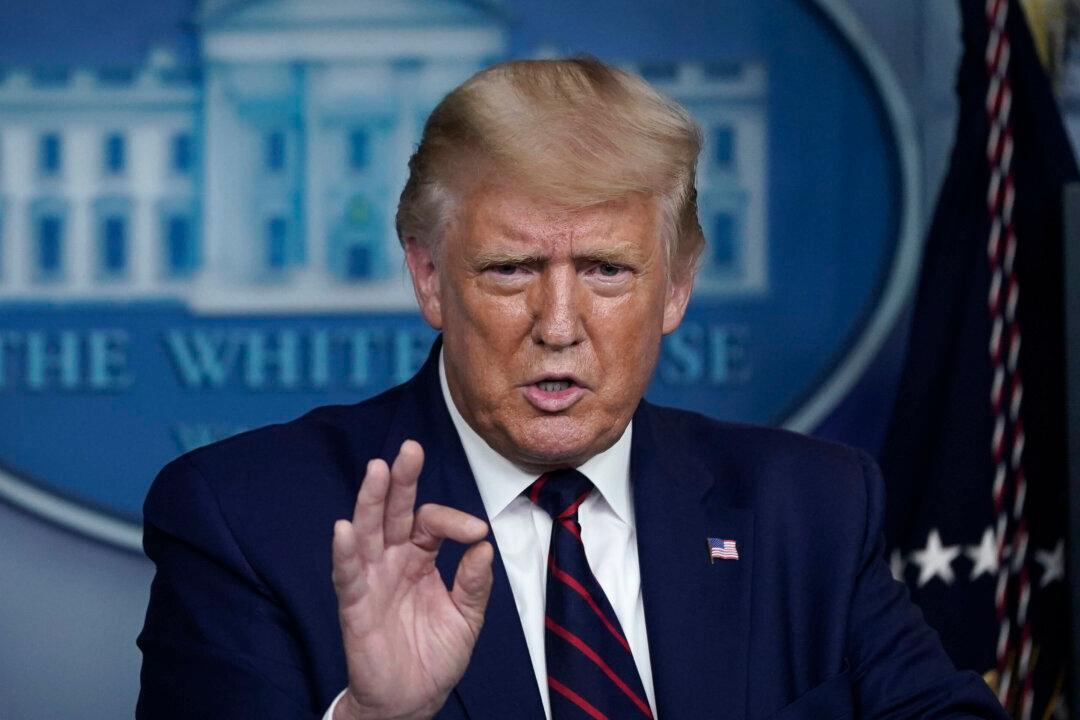President Donald Trump said at a press briefing Friday that while “there’s nobody been tougher on Russia that I have,” he wants to wait until he sees proof that Russian opposition figure Alexei Navalny was poisoned and so declined to criticize the Kremlin over what German authorities have said explicitly was a poisoning using a military-grade nerve agent.
“I don’t know exactly what happened. I think it’s—it’s tragic. It’s terrible. It shouldn’t happen. We haven’t had any proof yet, but I will take a look,” Trump told reporters when asked about what message he had for Russia in the wake of Navalny’s apparent poisoning and how the United States should respond.





